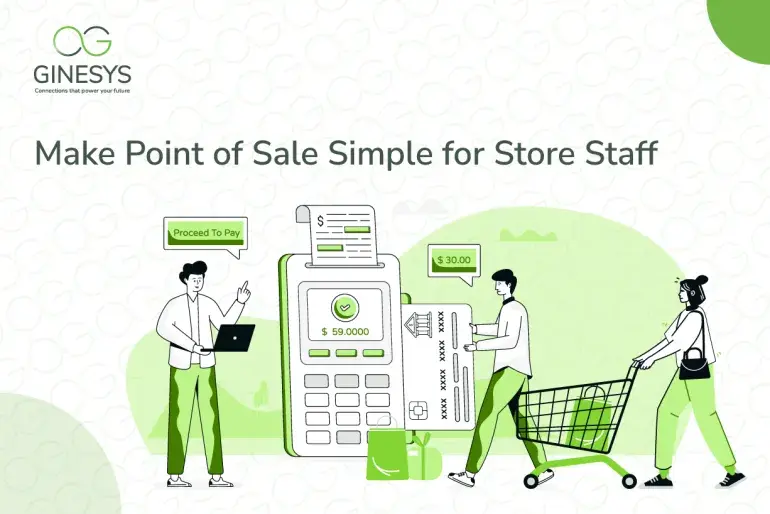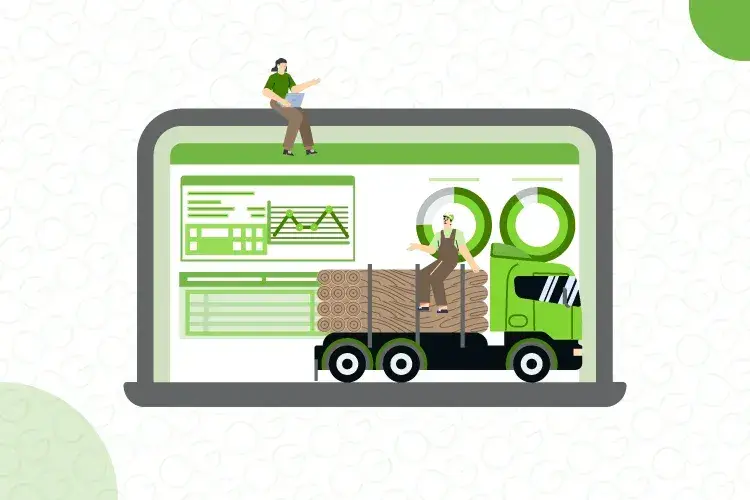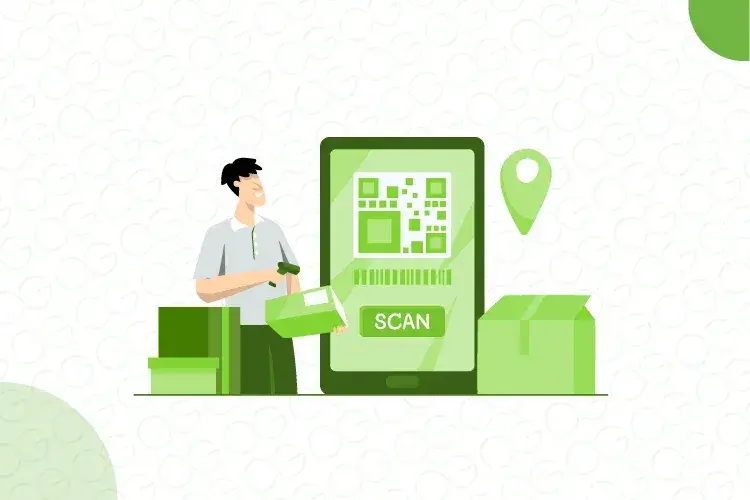Make Point of Sale Simple for Store Staff

A POS system is used to facilitate transactions in retail sales. For example, a well-known POS system is a cash register. Nowadays, modern POS systems are an amalgamation of hardware and software that often includes a barcode scanner, card reader, cash drawer, and receipt printer. The customer interface is generally a touchscreen. Credit card scanners connected to tablets are some of the simplest modern POS systems.
Retailers should look for an easy-to-use POS system that meets all their business' needs and demands. This blog is meant to illuminate how modern POS systems can facilitate total touch-free sales while greatly boosting retail efficiency. It used to be so that a cash register was all a business required to call up customers, trade, and accept payments. In the modern business ecosystem, businesses need a way to take payments, track sales, manage inventory and generate reports. The right POS system can handle all of these for you, and then some.
Whether you're looking to update your legacy systems or you’re on the hunt for your first POS system or looking to upgrade, it's hard to decide which one will be the best fit for your business. A point-of-sale system, or POS, is the first touch point where your customer makes a payment for products or services at your store. Every time a customer completes a purchase, they’re completing a point-of-sale transaction.
In the latest developments in point-of-sale software, the capabilities go beyond credit card processing to help retailers and restaurants incorporate mobile POS features and contactless payment options, ecommerce integration capabilities, and more.
Features of Modern POS Systems
The POS acts as the central system for your business; it’s the hub where everything—like sales, inventory management, payment processing, and customer management—merges. Let’s look at some of the features of modern POS systems:
Ease of navigation
Effectively designed and simple to navigate POS systems are vital to your commercial retail success because they have a knock-on effect on your business' customer service. Time is money, and the less time your employees have because of spending time trudging through a poorly designed UI, the sooner they can help customers check out.
While looking at any POS system’s software, see whether it has a user-friendly interface designed for minimum clicks that’s capable of processing a transaction from start to finish. A good POS provider will have transparent, visible information about their software features on their website.
There's more to consider beyond this though. Your POS software needs to be maintained and updated to the latest iteration to incorporate bug fixes and ensure your business derives the benefit of all software developments.
Cloud based POS systems generally come with automation capabilities. And that’s just while it acts as your main terminal. You’ll want to ensure that your POS software also has easy-to-use mobile apps that are simple enough for staff to get to grips with quickly in case you’re also using mobile POS systems.
Your retail business will experience greater efficiency by allowing various apps to share information automatically, eliminating the need to manually download and upload reports, customer lists, and other data.
Multiple Payment Options
It's hardly news that a POS system is capable of allowing its users to take payments from customers. Your POS system should add taxes and calculate the total amount of sales when transactions are made. While cash remains the most popular payment method (albeit increasingly less so in the digital age), you will need to ensure that your POS can cater to a wide range of payment options, especially credit card processing.
An effective POS system will also generate sales reports for you so you can look back over the transaction. Some POS providers even allow you to designate previous sales orders as repeat orders against customer names, to save checkout time and manual data reentry.
Mobile POS vendors issue their card readers in exchange for charging a transaction fee each time something is sold. Keep an eye out for ones that offer subscription-based pricing, as this implies that you’ll get fees that stay the same even if you process a higher volume of transactions or higher-value orders as your company scales.
Reporting and Monitoring Tools
Over and above seeing how your business’s products are selling and performing in the market, you’ll want to keep an eye on employee performance and productivity. Check to see whether a POS has the functionality to breakdown employee reports into various actionable ways – from total sales to sales by the hour; conversion rates; and commission owed.
Detailed reports enable you to easily see what an employee has sold, including the average price per customer, the time taken to transact, and transactions per hour.
Modern POS systems grant useful insights to business owners. They enable retailers to access valuable report data on employee and general business performance from any device with an internet connection, so your POS system should come with mobile applications that make digesting reports easy on any regular-sized smartphone or tablet.
Modern POS – The Ginesys Way
Ginesys has been helping the retail sector in India since 2006 with intelligent software solutions that enable retailers to derive maximum value. Our cloud and desktop-based POS offerings are now part of the Ginesys One Suite that encompasses a host of retail tools that ensure no stone goes unturned in your retail business. Contact us to find out more.



